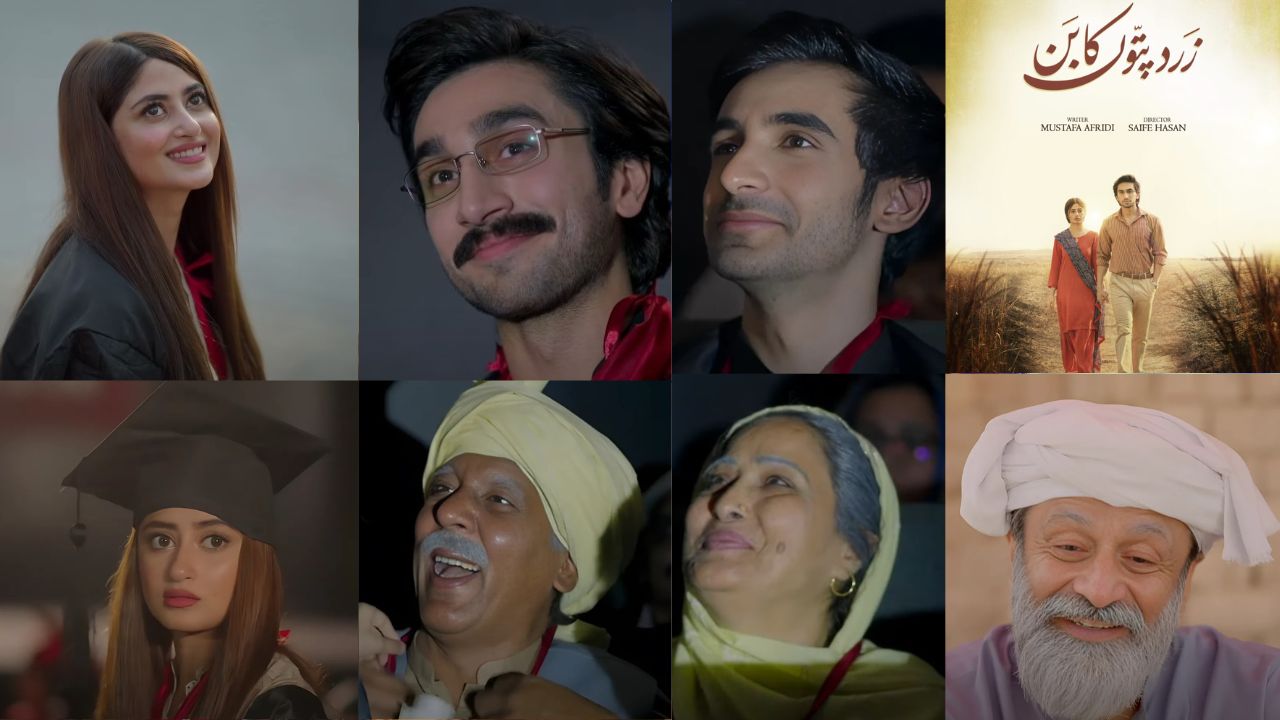Zard Patton Ka Bunn, a collaboration between HUM TV and the Kashf Foundation, ended on a touching note that left viewers feeling emotionally satisfied. The last episode highlighted the character’s challenges and success while delivering strong messages about empowerment and resilience.
Meenu stated, “The first condition is totally new brand new, especially for you. If you want to marry me, then not only will you have to teach me, but you will also have to bear all the expenses of my medical education. When I can earn, I will return all your money and will settle the account.”
She also showed her independence by saying, “Until I don’t complete my education, you and your family will not pressure me to give birth to children. I will have children as per my desire and will. If my physical and mental health allows me to, and if it’s not suitable, then I will adopt a child who has been deprived of a mother’s love.” This term and conditions not only emphasized her commitment to her career but also highlighted the importance of personal choice in family planning.

The message delivered by Sartaj Chahchi, a pivotal character in the drama, resonated deeply, “Until the population is not controlled, no one will be able to progress, population is even a bigger problem than employment. Our elders have said to live within the available resources. Give birth to as many kids as you can raise and educate. People give birth to kids but can’t feed them. First, parents ruin their kids’ childhood, and then masters exploit the children.”

The drama also highlighted the importance of justice as Nasreen played by Samiya Mumtaz and her children stood strong while fighting against her husband’s wrongdoings. Rani was accused of child labor by a landlord’s family and she was badly beaten before dying of her injuries.
Meanwhile the chairman of Qaiser Klan, Malik Nadir, portrayed by Rehan Sheikh, broke free from a cycle of bad behavior and gunda gardi of his father, giving hope for a better future.
Sajal Aly and Hamza Sohail, who played these roles, delivered powerful performances that captured the vulnerability and happiness of their characters, providing the audience with sweet moments to cherish.
Sajal Aly consistenly chooses strong scripts and prover her talent through brilliant acting.
There’s no doubt that Aly is one of the finest actresses in our entertainment industry.
I want like to appreciate Tanveer who has justified his role, and performed brilliantly. He was not the perfect man but he was the perfect father to his daughter, supporting her in every situation.
Compounder Chahcha Afzal Khan was one of those in Meenu story and apart from powerful presence he himself has a beautiful story in a wonderful performance by Ali Tahir.



The last episode featured a powerful message from the Kashf Foundation and Faiz Ahmed Faiz’s daughter Muneeza. Both delivered touching messages about children’s rights alongside and recited her father’s poem,

‘Yeh daagh daagh ujala, yeh shab gziida sehar
Woh intezaar tha jiska, yeh woh sehar toh nahi
Yeh woh sehar toh nahi,
Jiss ki aarzoo le kar
Chalay the yaar ke mil jaaye gi kahin na kahin’
Roshanay Zafar’s appearance to deliver a call to action added urgency to the message.

The drama wrapped up with dignity, tackling complex social themes in a relatable and heartfelt manner.
Writer Mustafa Afridi and director Saife Hassan worked tighter to create a story that combined emotional depth with social commentary, making the character’s strength and flaws impactful.
Overall, Zard Patton Ka Bunn will be remembered for effectively addressing important issues while captivating viewers with its touching story.








